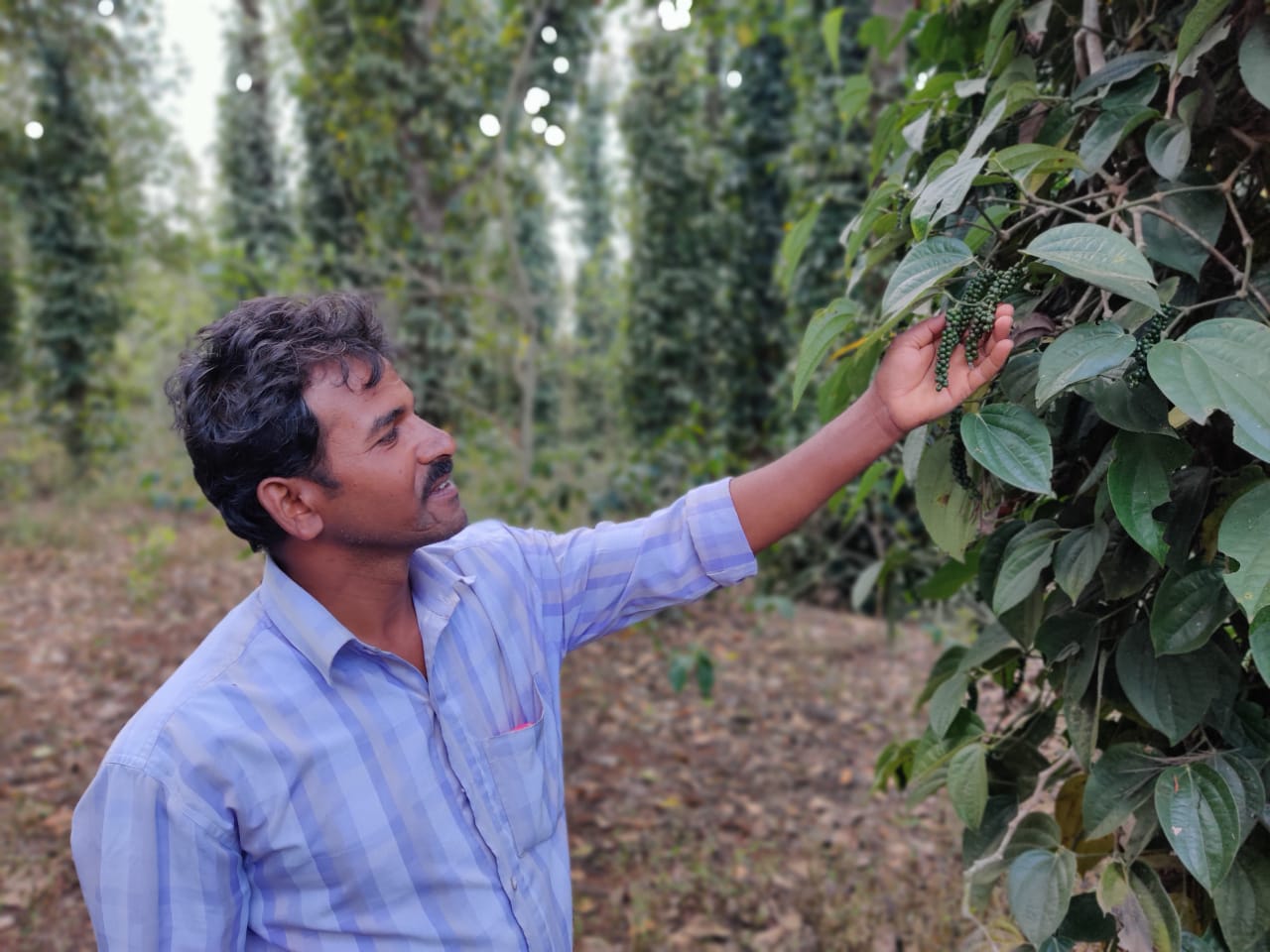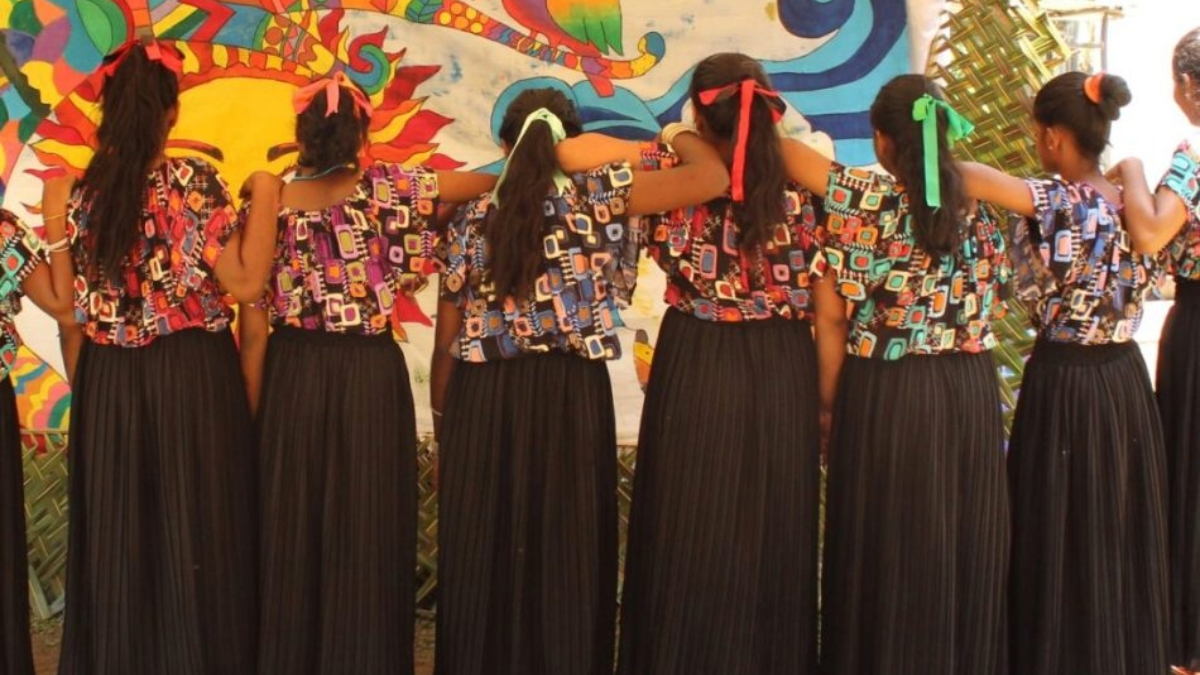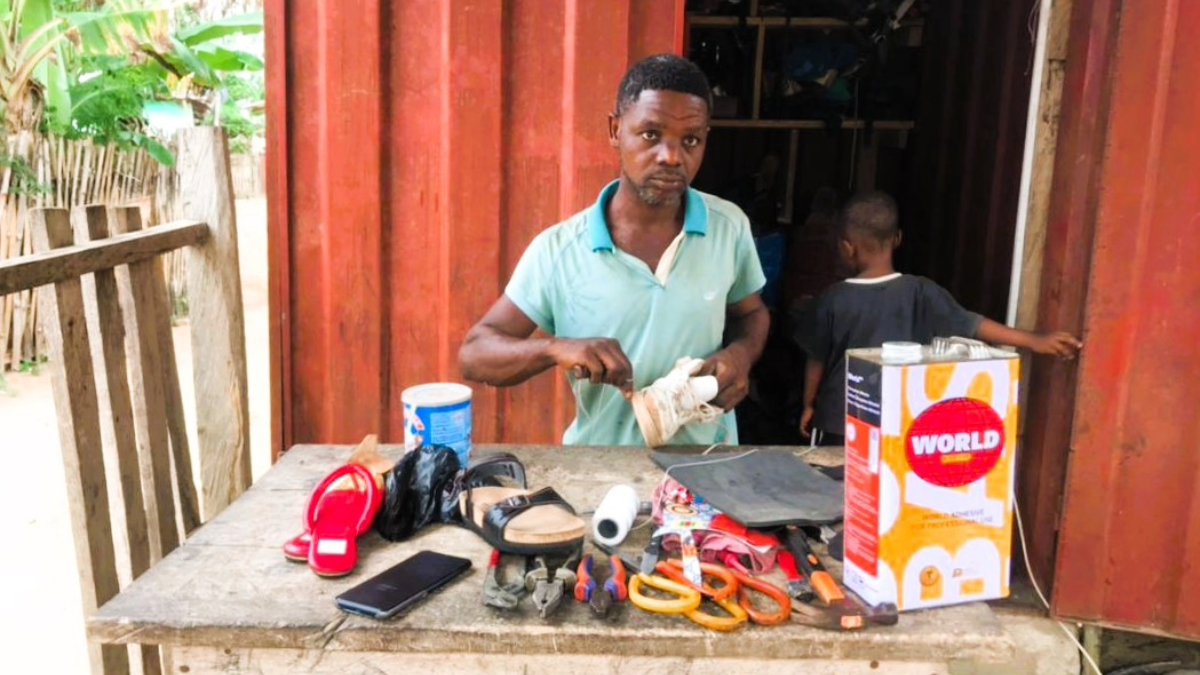 He soon discovered that the soil the farmers planted their crops in lacked calcium and iron, causing diseased roots and the occasional grasshopper menace. To add to this, these farmers did not follow the proper weighing system for their yields and were often forced to take whatever price the middlemen offered.
He soon discovered that the soil the farmers planted their crops in lacked calcium and iron, causing diseased roots and the occasional grasshopper menace. To add to this, these farmers did not follow the proper weighing system for their yields and were often forced to take whatever price the middlemen offered.
“They did not know the market rate for pepper and they were often cheated by the middlemen using tampered weighing machines,” he said.Statistics from 2015 show that of the approximately 12000 Hindu Malayalee tribal families living in the area, 90 percent depended on Pepper farming for a living. The tribal farmers are mostly landowners while others were given between 20 to 25 years lease to farm by the local land office. “A few years before I came here, some unscrupulous men had approached the farmers and introduced themselves as big exporters of pepper. Giving only fake name cards, the men took off with their crop of up to 20 tonnes of pepper and were never heard from again,” Thirupathi said. Getting the farmers’ trust was easy for Thirupathi as he was already well known in the area for his work with coffee farmers. READ: RF Funded Social Entrepreneur Thirupathi Perumal Changes The Economic And Social Fabric Of Tribal Farmers “After learning of the incident, I got in touch with the Indian Spice Board and shared with the farmers the list of the registered exporters. The farmers were advised to only deal with those on the list to avoid being cheated again,” he said. “My team members explained to the farmers that they must only use a digital weighing machine to avoid exploitation. We also shared with them the methods and benefits of organic farming,” he said. Organic farming proved to be a success as it managed to control crop diseases and provided better yields. “With natural farming and constant training by organic experts, the farmers saw improved yield. Earlier they were getting about 200 kilogrammes of yield. As of the last two years, this has increased to 700 kilogrammes!” he said. The organic farming method uses easily available items such as fresh cow dung, native cattle urine, millets and grains that grow on the farmers’ land. Satisfied with yield increase, Thirupathi and his team tackled the sanitation issue by securing pepper thresher machines from the government.
“Previously, at least four people were employed to remove the berries with their feet just to process 100 kilogramme of pepper. They worked more than 8 hours, for two days. After that, the berries would be dried and finally from the 100 kilogrammes, only one third would be the final output of dry pepper,” he said.“With the machines that my team helped them secure, the processing work is now done in a hygienic way. It is also economical as each machine can be used by about 400 farmers to separate the berries and turn into dry pepper. Now the process is much faster as within one hour, the machine is able to process 1000 kilogrammes of pepper,” he said.
 The machines, bought with 75 percent subsidy, were distributed to about 10 panchayats or village councils where about 3,500 farmers are using it for their work.
The farmers are part of a marginalised community that usually have access only to basic primary education. Their children, who are the fourth generation in the farming community, are also not interested in education, preferring to help their parents in their fields.
“But now we see about 50 primary schools here. We hope the children will be able to study and change the course of their lives.” he says.
Thirupathi is among the three social entrepreneurs funded by RYTHM Foundation under the Sadguru Gnanananda Fellowship, a project of Manava Seva Dharma Samvardhani Trust (MSDS).
The fellowship is offered to young Indian citizens who are socially conscious and work with people in rural areas or marginalised groups. Through the fellowship, the recipients are given an annual grant for three years, to help them scale their respective projects to benefit the local communities and help them become self-sustainable.
The machines, bought with 75 percent subsidy, were distributed to about 10 panchayats or village councils where about 3,500 farmers are using it for their work.
The farmers are part of a marginalised community that usually have access only to basic primary education. Their children, who are the fourth generation in the farming community, are also not interested in education, preferring to help their parents in their fields.
“But now we see about 50 primary schools here. We hope the children will be able to study and change the course of their lives.” he says.
Thirupathi is among the three social entrepreneurs funded by RYTHM Foundation under the Sadguru Gnanananda Fellowship, a project of Manava Seva Dharma Samvardhani Trust (MSDS).
The fellowship is offered to young Indian citizens who are socially conscious and work with people in rural areas or marginalised groups. Through the fellowship, the recipients are given an annual grant for three years, to help them scale their respective projects to benefit the local communities and help them become self-sustainable.





